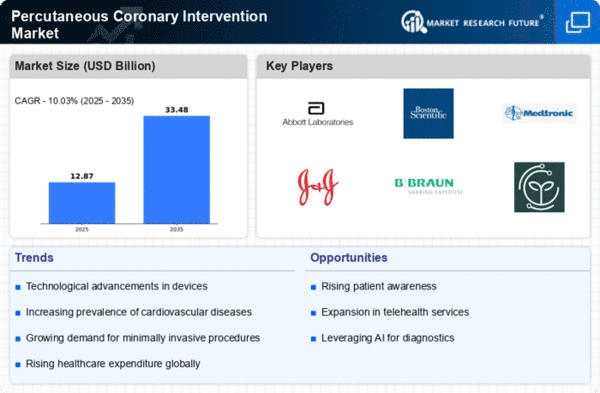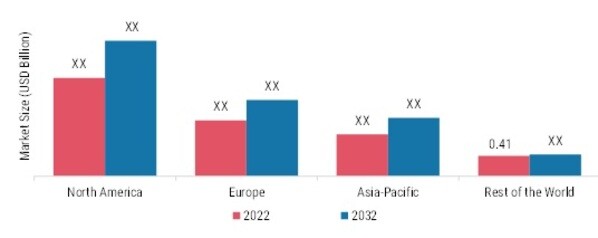Market Trends
Key Emerging Trends in the Percutaneous Coronary Intervention Market
Over the past three decades, the global incidence of cardiovascular disease, encompassing conditions like heart disease and stroke, has witnessed a continual rise, leading to an alarming surge in deaths and disabilities worldwide. In 2019 alone, cardiovascular disease accounted for a staggering one-third of global fatalities, according to the World Health Organization (WHO). The grim statistics revealed that nearly 17.9 million individuals succumbed to cardiovascular diseases, contributing to 32% of the total global deaths. The overwhelming majority of these fatalities, amounting to 85%, resulted from heart attacks and strokes. Several behavioral risk factors contribute significantly to the prevalence of heart disease and stroke, shaping a distressing health landscape. Unhealthy dietary choices, lack of physical activity, smoking, and problematic alcohol consumption stand out as the primary culprits in fostering these life-threatening conditions. The repercussions of such behaviors manifest in elevated blood pressure, increased blood glucose levels, heightened blood lipids, and the onset of overweight or obesity. These intermediate risk factors, identifiable in primary care settings, serve as critical indicators pointing towards an augmented risk of severe cardiovascular events, including heart attacks, strokes, and heart failure.
In tandem with the escalating health crisis, the number of individuals undergoing surgical interventions for heart-related ailments is on the rise. This surge in cardiac surgeries further underscores the growing prevalence of heart diseases on a global scale. Consequently, the market for percutaneous coronary intervention (PCI), a crucial medical procedure addressing coronary artery diseases, is poised for positive growth. As the incidence of cardiovascular diseases continues to escalate, the demand for PCI procedures is expected to rise, reflecting the urgent need for effective interventions to mitigate the impact of heart-related conditions.
The growing number of individuals undergoing cardiac surgeries highlights the imperative for advancements in medical procedures, such as percutaneous coronary intervention, to address the escalating burden of heart diseases and strive for improved cardiovascular health on a global scale.






Leave a Comment